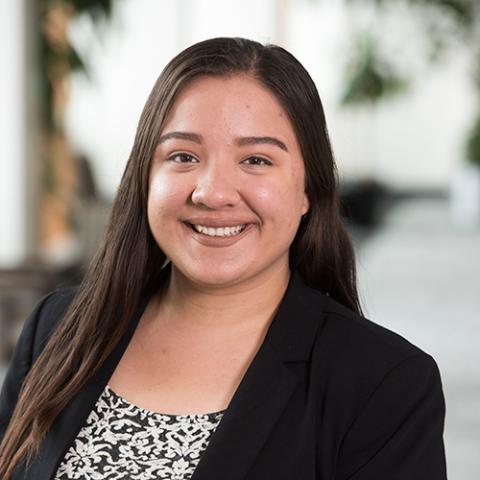McNair Scholar 2017 - Brenda Sanchez Murillo
Brenda Sanchez Murillo is a senior at the University of Minnesota Twin Cities, majoring in Sociology and minoring in Political Science. Her research interests revolve around understanding how public policy intersects with race, class, gender, political affiliations when it comes to health care, crime and punishment, education, and immigration. Ms. Sanchez plans on getting her Masters in Public Policy or in Public Administration.
Quote from Brenda Sanchez Murillo

My dream is to be a part of a non profit or government, where I can help reveal the root causes of our societies issues and fix the problems, as opposed to continuing to put band aids on our biggest challenges.
Research project
Evaluating Probation Experiences
Abstract: As mass incarceration has expanded and has become more aware to scholars, policy makers, and the public, probation or supervision in the community in lieu of imprisonment has also grown as the predominant form of criminal justice supervision. This expansion of mass probation likely had unique and critical impacts on individuals, families, and neighborhoods, yet research on this “hidden” form of supervision is sparse (Phelps, 2016). In 2016, the Robina Institute conducted interviews with probationers, probation officers, probation officer supervisors and court actors in X jurisdictions to better understand community supervision. We used a qualitative coding software (NVivo) to explore the burdens, challenges, and opportunities of supervision. We used a qualitative coding software (NVivo) to explore the burdens, challenges, and opportunities. Many probationers and some probation officers feel that some conditions of supervision, such as fines and fee, length of probation, and treatment programs that don’t pertain to their crime, are not helpful to their rehabilitation, and create barriers for success. However, other probationers and probation officers reported that supervision helps to keep individuals guided into the right direction. These analyses can help us to understand how to craft better community supervision policies.
Faculty mentor
Dr. Michelle Phelps is an Assistant Professor in the Department of Sociology at the University of Minnesota and a Faculty Affiliate at the Robina Institute of Criminal Law and Criminal Justice, University of Minnesota Law School, and Minnesota Population Center. Her research is in the sociology of punishment, focusing in particular on the punitive turn in the U.S. Her primary lines of ongoing research are on mass probation, contemporary criminal justice reform efforts, and policing. Together with Joshua Page (University of Minnesota) and Philip Goodman (University of Toronto), she is the author of Breaking the Pendulum: The Long Struggle Over Criminal Justice (OUP 2017) that traces the history of U.S. corrections since the birth of the penitentiary.